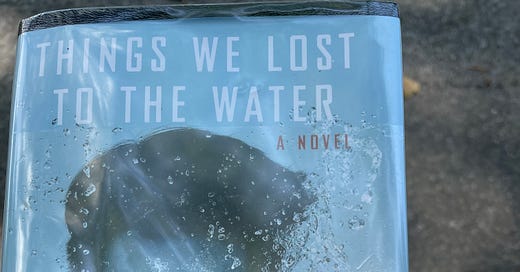When we visited Vietnam in early 2019, we found a world of luxury hotels, beaches so empty they held nothing more than our footprints , and a friendly young population who had no memories of, nor held any animosity, toward Americans.
This was not the Vietnam we grew up with via TV and newspapers in the late 60s and early 70s.
As I was graduating from college in 1975, I remember footage of tanks and troops overrunning Saigon, and ordinary people running for boats that would help them flee the country.
In other words, the “boat people.” Whatever happened to them? “Things We Lost to the Water” a new novel by Eric Nguyen offers a clue.
Huong, a “boat mother” who has one child and is pregnant with a second, soon finds herself in New Orleans. Without her husband who unclasps her hand as they’re running for the boat m. But she’s not in New Orleans’ Garden District. Not even close.
She winds up with her two kids in a crappy tenement in NOLA East with fellow Vietnamese refugees, living on ramen and working in a nail salon. She pines for her lost husband, writes to him in the old country (receives no worries), meanwhile worrying about her two kids who are growing up in all the wrong ways.
Nguyen’s book follows the family’s life from early 1980 on. In 30 years, the oldest son briefly joins a street gang in NOLA; the youngest comes out as gay and eventually flees to Paris. The book ends in 2005, when Hurricane Katrina hit. (The description of what happens to this family during HK is perhaps the most disturbing but authentic-sounding I’ve ever read.)
Reading an immigrant’s coming of age, along with their feeling of rootlessness and not belong anywhere, is nothing new. But when the ethnic group comes from Vietnam, a country that’s been transformed in 45 years, it makes for compelling, familiar, and often heartbreaking reading. Even if you haven’t stayed at a five-star resort in Hue.
Yeah for sure read this.




Yeah, definitely reading this. Other than vague memories of pictures of Vietnamese communities on the Gulf and in California, my knowledge of the refugees called boat people ends with the evacuation of Saigon. I almost feel it’s an obligation to start to fill in this knowledge gap, and I thank you for bringing Things We Lost To The Water to my attention. I’m excited to see where this book will lead me next, since I often get on one subject and go deeper. 👍👍